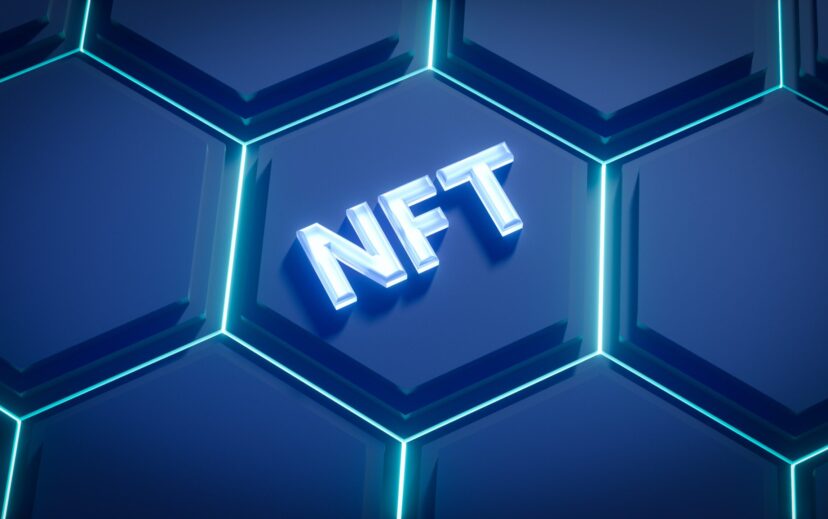When it comes to being served with court papers, the stereotypical image that comes to mind is that of a process server chasing down a defendant with a complaint and summons in hand. This form of service – personal delivery – is the most straightforward method, although there are several other established ways to serve a summons and complaint, including by mail. It is very rare that a court will allow a plaintiff to deviate from these established methods of service, although certain situations may call for such relief. The development of blockchain technology has created the opportunity for a new method of service: service via non-fungible token (NFTs).
Recently, two courts have allowed plaintiffs to serve anonymous defendants via NFT. An NFT is a digital file typically containing creative content (e.g., art, music and video), although the file can have almost anything in it. Importantly, NFTs rely on blockchain technology to ensure the authenticity of the transaction. This provides an advantage over in-person and mail service for cases involving anonymous defendants in blockchain-related disputes. However, there are still questions about how and when someone can be served by NFT in a lawsuit.
What Are the Basic Rules for Service of Court Papers?
The fundamental rules for service of court papers are derived from the U.S. Constitution. Constitutional due process requirements provide that a party must give fair notice to an opposing party about upcoming legal proceedings. Traditionally, that is done through personal delivery, delivery on a defendant’s agent, mail or a combination thereof. However, a party may request an alternative method, which must satisfy constitutional requirements and be approved by the court.
How Have New York Courts Addressed Service by NFT?
The first reported instance of a defendant being served via NFT is in the case of LCX AG v. John Doe Nos. 1-25. In January 2022, LCX AG, a Liechtenstein-based cryptocurrency exchange company, publicly reported that nearly $8 million in digital assets were stolen. The company launched an investigation and notified law enforcement. LCX was able to trace $1.3 million of the stolen assets to a specific wallet address on the blockchain but could not identify the thief’s name or address. As a result, when it filed suit in New York County Supreme Court, it requested that the judge approve service via NFT.
LCX proposed airdropping a service token that contained a hyperlink leading to a website created by the plaintiff’s attorney, where the order to show cause and all court papers upon which it is based would be published. This “service hyperlink” would include a mechanism to track when a person clicked on the link.
NY Supreme Court Justice Andrea Masley approved LCX’s request to serve via an NFT, finding that such service constitutes good and sufficient service for the purposes of jurisdiction under New York law.
Have Other Courts Allowed Service by NFT?
In July 2022, the High Court of England and Wales allowed a plaintiff, Fabrizio D’Aloia, to serve court papers on the defendants via an NFT airdrop. D’Aloia, the founder of Microgame – an Italy-based online gambling company – claimed he was duped by the defendants into depositing $2.1 million worth of cryptocurrency assets into online brokerage accounts. The funds subsequently disappeared. The defendants’ identities were unknown but were traced to two wallet addresses on the blockchain. The court authorized plaintiff to sue the individuals responsible for the fraudulent platform by sending the court papers via NFT to the two wallets.
This is the first reported European case allowing a plaintiff to serve via NFT, and second in the world after the New York case.
Will Service of Court Papers via NFT Become a Regular Occurrence?
It is unlikely that service via NFT will become common because of constitutional concerns. However, these cases indicate that in certain circumstances, courts will allow defendants to be served by NFT, provided plaintiffs follow specific procedures to ensure due process.
These courts have recognized that in blockchain-related disputes, defendants are usually anonymous and that permitting notice via NFT makes it easier for companies to sue thieves and deter illegal behavior. While this is good news for plaintiffs, there are possible weaknesses to such method of service. First, courts have yet to hear a defendant’s challenge to the adequacy of such service. A defendant facing a default judgment may later claim that it was not served adequate notice (i.e., that such method of service was not fair as per constitutional requirements).
A second possible challenge stems from the uncertainty of whether the defendant actually opened the NFT and clicked on the hyperlink embedded in the token. Given the anonymous nature of the blockchain, a defendant could argue that although the hyperlink was clicked, it wasn’t actually done by the defendant but by another party with access to the wallet, although this situation would be unlikely and extremely fact specific. This may be grounds for a court to later vacate a default judgment against the defendant.
Conclusion
With the rise in blockchain transactions, it is likely that service by NFT will occur more often. This is an evolving area, so it is essential to work with an attorney who understands these issues. If you have a blockchain or cryptocurrency dispute, contact a member of our team for next steps..
Andres Munoz is admitted to practice law in New York and Florida.






